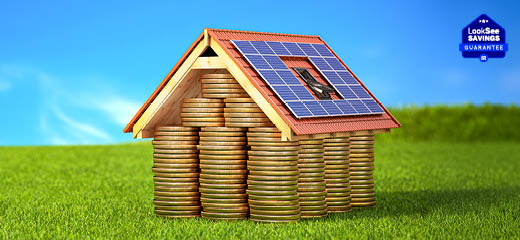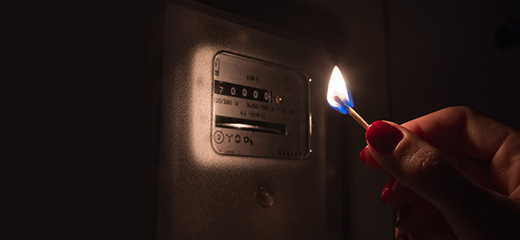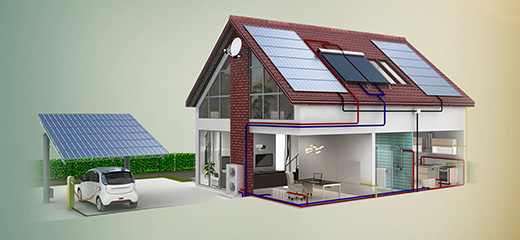
SA gets first energy rating for existing homes
Existing homes in South Africa can now be rated for their energy efficiency and carbon performance, thanks to a ground-breaking new certification from LookSee in partnership with the South African National Energy Development Institute (SANEDI).
This might sound like something only policy makers or researchers would get excited about, but here’s why it matters to you, your home, and your budget.
Why a home rating system is a big deal
Until now, energy-efficiency ratings were something you only heard about when shopping for a new fridge or buying into a new, eco-friendly housing development. South Africa has had no formal way to measure or recognise how energy-efficient existing homes were even though there are more than 6 million formal residential properties across the country.
This new certification changes that, says LookSee executive head Marc du Plessis.
“We’ve all become more aware of our electricity usage in recent years because of escalating prices and the strain on the grid. However, it’s incredibly difficult for a household to understand whether their usage patterns are higher or lower than similar homes,” he says.
What does the certification show?
By tapping into data like your electricity bills, solar inverter readings, and even satellite imagery, LookSee has created a smart, practical way to measure how a home performs without the need for costly inspections or disruptions.
Each certified home will receive two key ratings:
- An Energy Rating showing how efficiently your home uses electricity, compared to similar homes.
- A Carbon Rating showing how much carbon your household is responsible for, based on energy usage and renewable energy contributions.
An A-rating means your home is energy-smart and environmentally friendly. An F-rating means there’s room for improvement and potentially big savings on your electricity bill.
Backed by SANEDI, aligned with SA’s climate goals
The certification approach has been thoroughly tested and is officially endorsed by SANEDI, the government’s leading institute for sustainable energy development. It also supports national goals around climate action, energy efficiency, and the Just Energy Transition.
Faith Mkhacwa, SANEDI’s General Manager for Energy Efficiency, says: “This certification programme has the potential to transform the residential market by promoting a culture of energy efficiency, supporting South Africa’s 2030 residential energy targets, and helping homeowners and buyers make smarter, more sustainable decisions.”
This certification programme doesn’t just benefit individual households, it could pave the way for one of South Africa’s biggest climate action initiatives yet. With accurate data on millions of homes, the country can better plan policies, improve infrastructure, and attract international funding to support cleaner, greener living.
What’s in it for you right now?
While the certification is currently in pilot phase, Du Plessis says LookSee is already offering meaningful incentives for households looking to improve their energy performance.
The company has launched a first-of-its-kind Savings Guarantee on all new hybrid solar installations to give households confidence when making this investment decision. Making use of sophisticated calculators, LookSee is able to reliably assess the family’s minimum savings expectations over the first six months and backs this up with once-off R2 000 cashback if it misses the mark.
What’s more, customers who use their Standard Bank home loan to finance their hybrid solar solution will customers an additional R5 000 cashback into the account of their choice.
This new certification programme is just the beginning of a more energy-aware residential market in South Africa. It’s a tool to help you take control of your home’s energy use, save on electricity bills, and do your part in fighting climate change – all while potentially increasing the value of your property.
LookSee offers a Savings Guarantee based on your minimum saving expectations and a once-off R2 000 cashback if savings are not met.








